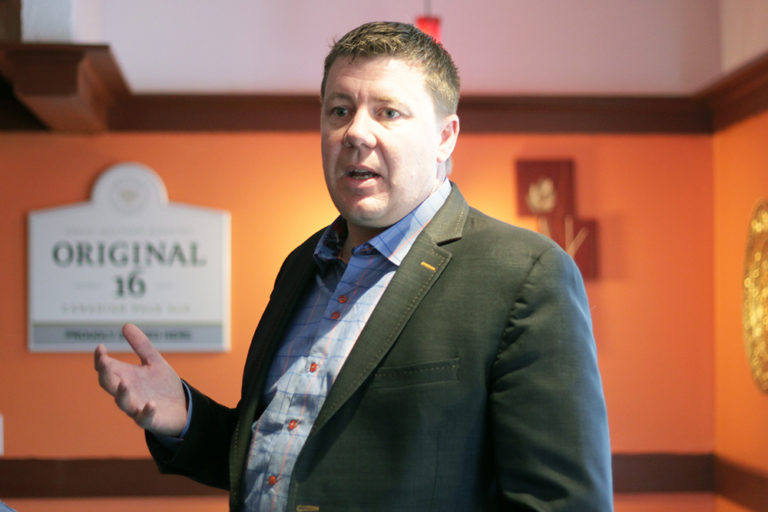
Updated as of 6:55 p.m., Friday, March 20.
The provincial government says Saskatchewan residents who refuse to self-isolate after returning from international travel will face fines of up to $2,000 and possibly jail time.
Premier Scott Moe made the announcement on Friday after the province announced six new presumptive COVID-19 cases, including two people in their 60s who were tested in Prince Albert after travelling to Arizona.
The new rules were part of a series of laws and financial supports introduced by the government on Friday. Moe signed an order pursuant to the provincial State of Emergency which he said would put “the full weight of the law” behind the Chief Medical Health Officer’s orders.
Moe added that he knows the majority of Saskatchewan residents are taking the COVID-19 outbreak seriously. These measures are directed at those who don’t.
“This is not a suggestion. It is not a guideline. It is now the law,” Moe said during a media briefing on Friday. “When you return to Canada, you must go home immediately and you must self-isolate for two weeks. This doesn’t mean that you go to the grocery store or go to the drug store or go fill up with gas and then you go home and self-isolate. It means you go home and you stay home, now. If you don’t do this, you are now breaking the law.”
Moe said he’s confident police won’t be needed to enforce the province’s new restrictions. However, he also said residents should call law enforcement if they know of someone who isn’t self-isolating after returning from abroad.
“This doesn’t work if most of us do it,” Moe said. “We all have to.”
Effective immediately, all international travellers returning to Saskatchewan will have to go into a mandatory 14-day self-isolation. Healthcare workers, truckers, rail crews and airline crews are exempt from this advisory if they are needed to maintain essential services.
The mandatory self-isolation order also applies to anyone identified by a Medical Health Officer as a close contact of someone with COVID-19, as well as any household members of a person with laboratory-confirmed COVID-19.
Dr. Saqib Shahab, the province’s Chief Medical Health Officer, said the situation has evolved quickly over the last two week, and many of the past recommendations about travel and self-isolation are now redundant.
In the past, travellers only had to self-isolate if they’d visited certain cities, provinces or countries. In other cases, they simply had to self-monitor for potential symptoms. With the pandemic hitting global levels, Shahab said, there are no safe areas.
“The risk really, now, it doesn’t matter wherever you come from,” he explained. “That’s the main message. We see our cases that are actually coming from sun destinations, they’re coming from down south, and so we really have to observe the same process for the next little while until this settles down. Then we can re-evaluate.”
The Prince Albert Police Service sent out a press release late Friday afternoon saying they would work in collaboration with the Saskatchewan Public Safety Agency to enforce the government’s orders. The press release also said PAPS “is in full support” of the province’s decision.
The Saskatchewan RCMP also released a statement promising to work collaboratively with the Saskatchewan Public Safety Agency to ensure compliance.
Business and public service closures to take effect on Monday
While mandatory self-isolation measures take effect immediately, mandatory closures affecting businesses, won’t take effect until Monday, March 23.
On that day, restaurants, cafes, food courts and bistros will all have to close, as will personal services like hairdressers, barbers, sun tanning parlours and tattooists. Dentists, optometrists, chiropractors, massage therapists and podiatry clinics are closed to everything except emergency procedures, and daycare facilities are limited to a maximum of eight children unless they can reconfigure their facility to keep groups of eight children in separate rooms.
All daycares located within a long-term care or personal care home that meet those restrictions can stay open, provided they have segregated private entrances, no shared common areas, and no interaction between daycare children and facility residents.
Not-for-profit community services like soup kitchens can remain open providing they maintain a two metre distance between tables. Restaurants can also offer takeout services provided they follow the same two metre separation rule.
Recreation and entertainment facilities like fitness centres, casinos, hockey rinks, art galleries, museums and bingo halls also face mandatory closure.
Nightclubs, bars and lounges will also be forced to close, although they too can provide takeout food and alcohol provided there is a two metre distancing between customers. Unlike mandates for other businesses, these rules come into effect immediately.
Province further caps public gatherings and limits care home visits, effective immediately
Caps on public gatherings have been reduced from 50 to 25 people, effective immediately, unless patrons can maintain social distancing of more than two metres. This applies to workplace settings where people are distributed into multiple rooms or buildings, or retail settings like grocery stores, pharmacies and gas stations.
Visits to long-term care homes, hospitals, group homes and personal care homes shall be restricted to family visits for compassionate reasons. In-person classes at elementary schools, post-secondary schools and high schools are also suspended.
